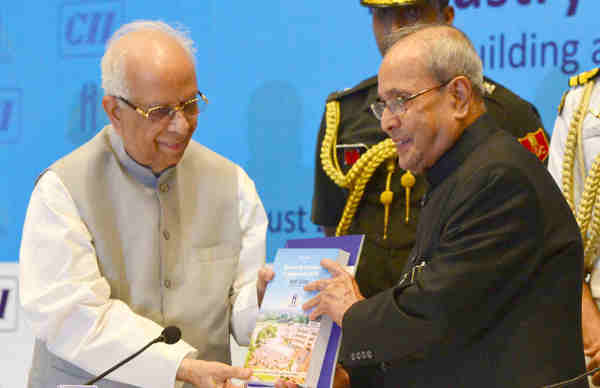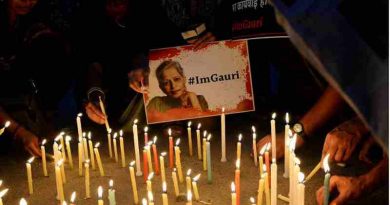Can Amnesty Help Stop Human Rights Abuses in India?

Amnesty has been quite vocal about the draconian sedition law in India which allows the Indian governments to settle a score with all those who tried to raise voice against their excesses.
By Rakesh Raman
The Indian arm of human rights organization Amnesty International is facing sedition charges in India for its efforts to raise the issue of state atrocities in the disputed territory of Kashmir.
Amnesty India reports that a police complaint has been filed against it for an event that allowed families of the victims of human rights violations in Jammu and Kashmir to tell their stories.
The event was held on August 13 in Bengaluru (Bangalore) while the complaint, according to Amnesty, was filed two days later by a representative of Akhil Bharatiya Vidyarthi Parishad (ABVP), the student wing of the ruling Hindu group Bharatiya Janata Party (BJP).
It is alleged in the complaint that anti-India slogans were raised in the event that resulted in inciting a sentiment against the Indian state – which amounts to sedition.
[ Kashmir Burning. Muslims Meet Indian Rulers ]
Amnesty, however, clarifies that the event was held as part of a campaign based on the report “Denied: Failures in accountability for human rights violations by security force personnel in Jammu and Kashmir”.
According to Amnesty, the report was published in July 2015 and it documents the obstacles to justice faced in several cases of human rights violations believed to have been committed by Indian security forces in Jammu and Kashmir.
It focuses particularly on Section 7 of the Armed Forces (Jammu and Kashmir) Special Powers Act, 1990 (AFSPA), which grants virtual immunity to members of the security forces from prosecution in civilian courts for alleged human rights violations.
[ Sonia Gandhi: Events in Kashmir Are Tragic ]
The report, according to Amnesty, was based on in-depth research in Jammu and Kashmir, including interviews with family members of victims, Right to Information applications, examination of police and court records, and interviews with civil society groups, lawyers, and government officials.
Amnesty says that the families of three Kashmiri victims that were interviewed for the report were invited to share their stories at the recent Bengaluru event.
Kashmir has been facing a series of violent incidents since the killing of a 22-year-old rebel leader Burhan Wani by the Indian security forces on July 8 in an encounter which many believe was avoidable.
[ Also Read: Increasing Violence Damaging India’s Economy: Report ]
Nearly 80 people have died and thousands injured in the conflicts between the supporters of Burhan Wani and the Indian security forces in Kashmir, which is a disputed territory between India, Pakistan, and China.
Amnesty has been quite vocal about the draconian sedition law in India which allows the Indian governments to settle a score with all those who tried to raise voice against their excesses.
The BJP government, headed by a Hindu Prime Minister (PM) Narendra Modi, is using the sedition law excessively to silence its opponents. And it is invariably using ABVP as a frontal outfit to file complaints against people who challenge the atrocities being committed by the BJP government.
[ Also Read: 15 Laws of Global Terrorism Revealed ]
According to a report released in February 2016 by Amnesty International, there are gross violations of human rights and frequent attacks on freedom of expression and speech in India by the Hindu groups – that many believe enjoy the support of the Modi government.
Earlier this year, the Modi government used the police force to arrest a few students from the Jawaharlal Nehru University (JNU) on sedition charges while there was hardly any evidence against the students. It was alleged that some people at a JNU event raised slogan demanding freedom of Kashmir from India.
Students from various educational institutions had launched a massive campaign against the increasing excesses of the Modi government. Calling the oppressed communities from different countries, the students in India had urged all to observe March 2 as the “International Protest Day.”
Amnesty India had also launched an online petition demanding the repeal of sedition law, as the Indian government is misusing the law to suppress any kind of opposition.
[ आओ मिल कर करें एक नये और समृद्ध भारत का निर्माण ]The petition addressed to Rajnath Singh, Home Minister of India, said that the British used the sedition law to curb free speech during India’s independence struggle. Now the government is using it to silence and harass those with divergent opinions.
Continuing its protest against the sedition law, earlier this month, Amnesty India demanded the release of a Kashmiri man arrested under ‘sedition’ for sharing ‘anti-India’ posts on Facebook. Amnesty said it is an absurd use of an archaic law to curb freedom of expression.
Ironically, one of the consequences of Amnesty’s loud voice against the sedition law in India is the sedition case against it.
It is believed that Amnesty has shuttered its offices in India to escape arrest of its employees by the police. However, it is retweeting a slew of messages and reports from its Twitter account.
By Rakesh Raman, who is a government award-winning journalist and social scientist. You also can visit the REAL VOTER – Politics in India Information Center that he manages.
Photo courtesy: Amnesty





